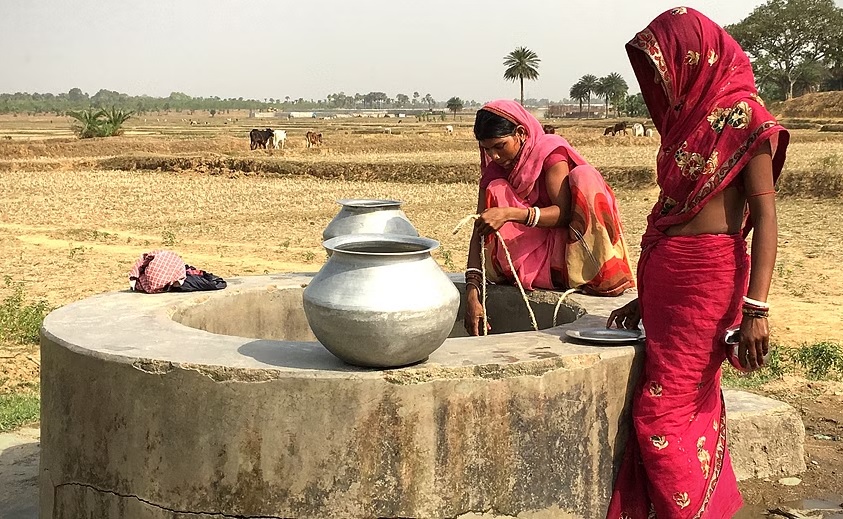A complaint has been lodged against a journalist for reporting on the discrimination and social boycott faced by Scheduled Tribes Lohra community in Navadih village under Silli block, Ranchi. The people from Lohra community stated that they were not allowed to draw water from the common well. This, despite, the well from where Lohras were drawing water has completely dried up. If they needed water, the Kurmis draw water for them and give it to the Lohras. For making a news report on this issue and for shooting a video of interviews with the Lohras, a complaint has been filed against the reporter, Ved Prakash who uploads news reportage on his channel called “The Activist”.
People in the video can be heard saying that during weddings, they are made to sit at a distance and then served food by the Kurmis. One of the persons speaking in the video said, “vo log agar chair aur table pe khata hai, to hum log ko zameen pe baithake hum log ko khane ke lie dia jata hai” (if they sit on tables or chairs, we are served food on the floor).
One woman also said that whenever there is a wedding at their house, the Kurmis do not eat the food that is cooked by them.
A woman also pointed out that, “there is a separate well designated to them which is dry and these people have to take water from others”. Further, there was another small well nearby which had unclean water and these people use the water from it for cooking purposes.
Jharkhand has a tribal Chief Minister, as noted by Ved Prakash, yet, people in the village areas continue to face discrimination and have accepted it and made it a normal part of their lives.
After the video, a complaint was filed in the Pindrajora Police station by the Zila Parishad (District Councillor) of the area, Rajesh Mahato on the allegations that Ved Prakash was trying to cause a riot, creating a divide between the two communities and was misrepresenting facts in his reporting.
As reported in Bhaskar News, “ukt logon ne kumdi samaj ko badnam karne ke lie Lohra samudae evam Kumdi samudai me bhedbhav failakar dushmani va ghrana paida karne tatha danga failane ke uddeshya se video banakar social media me dala.” (the above-mentioned people have tried to spread discrimination, hate between Lohra and Kumdi communities with the intention of causing a riot).
Constitutional Rights
Right to clean drinking water has been interpreted to be a part of Right to life under Article 21 of the Constitution of India. Further, the Directive Principles of State Policy under Article 39 (b) states that “the State shall, in particular, direct its policy towards securing that the ownership and control of the material resources of the community are so distributed as best to sub serve the common good.”
The Apex Court through several judgments has also reiterated that the right to clean water is a fundamental right for everyone as water is needed for the basic survival of everyone.
For example, in the case of Narmada Bachao Andolan v. Union of India, 2000 (7) Scale 34 the Hon’ble Supreme Court held,
“Water is the basic need for the survival of human beings and is part of right of life and human rights as enshrined in Article 21 of the Constitution of India and can be served only by providing source of water where there is none… All people, whatever their stage of development and their social and economic conditions, have the right to have access to drinking water in quantum and of a quality equal to their basic needs.”
Further, by refusing to eat the food made by the tribal community and making them sit on the floor for eating food while they sit on chairs is a form of untouchability which is prohibited under Article 17 of the Constitution and is also violative of Article 15 (right against discrimination) of the Constitution. Further, it amounts to offenses under the Scheduled Castes and the Scheduled Tribes (Prevention of Atrocities) Act, 1989 as well.
Related:
2022: A Look back at hate crimes against Dalits and Adivasis
Dalits and Adivasis suffered violence and discrimination even in 2021

